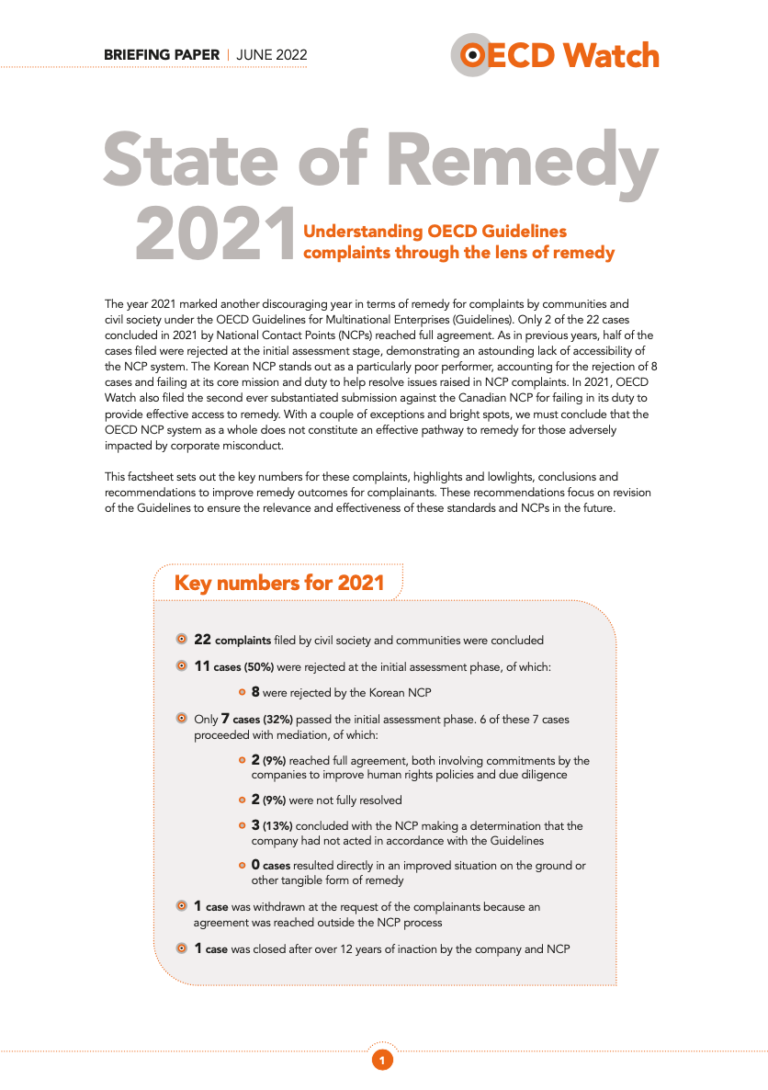The year 2021 marked another discouraging year in terms of remedy for complaints by communities and civil society under the OECD Guidelines for Multinational Enterprises (Guidelines). Only 2 of the 22 cases concluded in 2021 by National Contact Points (NCPs) reached full agreement. As in previous years, half of the cases filed were rejected at the initial assessment stage, demonstrating an astounding lack of accessibility of the NCP system. The Korean NCP stands out as a particularly poor performer, accounting for the rejection of 8 cases and failing at its core mission and duty to help resolve issues raised in NCP complaints. In 2021, OECD Watch also filed the second ever substantiated submission against the Canadian NCP for failing in its duty to provide effective access to remedy. With a couple of exceptions and bright spots, we must conclude that the OECD NCP system as a whole does not constitute an effective pathway to remedy for those adversely impacted by corporate misconduct.
This factsheet sets out the key numbers for these complaints, highlights and lowlights, conclusions and recommendations to improve remedy outcomes for complainants. These recommendations focus on revision of the Guidelines to ensure the relevance and effectiveness of these standards and NCPs in the future.

